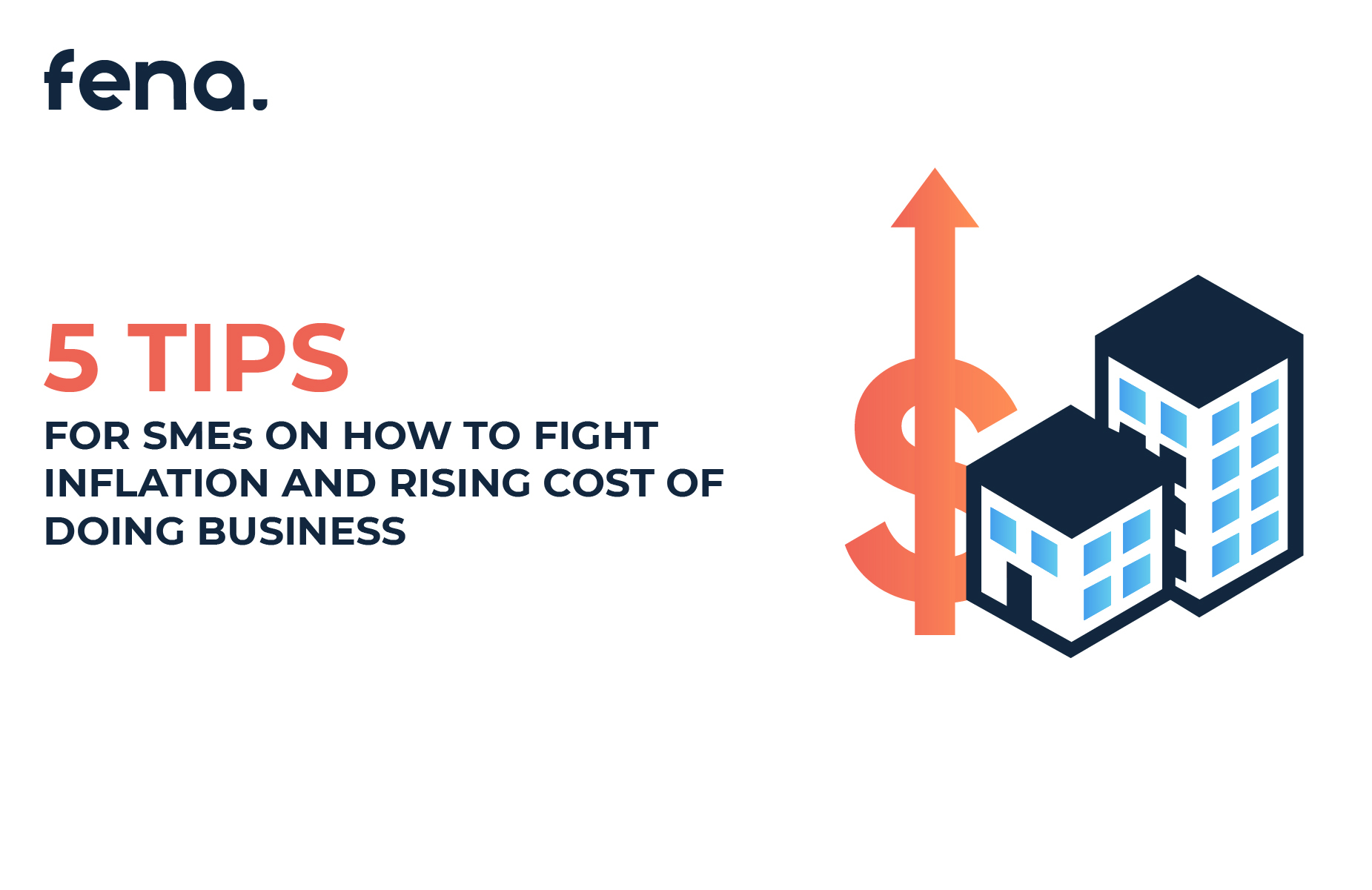5 Tips for SMEs to Fight Inflation with Open Banking
by Gosia Furmanik on August 18, 2022

The word "Inflation" is getting mentioned a lot recently. It's no surprise, considering the UK predicts an inflation rate of 13% year-on-year. These profound inflation levels are beyond extreme: rising costs and eroding profits significantly hurting SMEs.
To keep your business alive through these unprecedented times, following a proper strategy is essential. Right now, you should re-evaluate some of the overlooked fees and costs impacting margins.
We want to help businesses through this crisis, as SMEs support most of the UK economy. Without them, the nation wouldn't thrive. Therefore, we'll detail the top 5 tips to fight inflation for your SME. To learn how, read the following:
Top 5 tips to fight inflations for SMEs

Inflation is driving production costs, raw materials, and wages up. During the next 12 months and beyond, SMEs need to reconsider their strategy and costs to survive. Though achieving this sounds challenging, it's much easier than you think.
Tip 1: Open banking
With business, processing fees cost a considerable amount of money. Currently, standard transaction fees cost SMEs between 1% and 5% of the total costs. Therefore, if you generate £100,000 of revenue and use a transaction method costing 5%, it'll cost £5,000.
For any SME, that's a significant amount of money. As a result, we highly recommend you switch over to open banking. With this payment solution, you pay minimal fees. At Fena, we offer a 0.3% transaction rate at a £0 monthly fee. This tip alone could reduce that £5,000 fee by £4,700.
However, the reasons why B2B and B2C companies should use open banking go far beyond this. Open banking payment methods improve cash flow, provide more flexibility and have bank-level security. Undoubtedly, switching from traditional payment methods to open banking is worth the time. To receive these benefits, check out Fena today and start actioning this tip now.
Tip 2: Pre-order stock
Stock prices are increasing across the board, and these price hikes are impacting everything, whether it's toilet rolls, cardboard boxes, or vital components for your products. Although some products might raise more than others, they'll all experience something similar.
Because of this, you need to think now and fast. Please don't wait for the moment for prices to drop, as it's unlikely to happen anytime soon. Instead, forecast sales, predict required future stock, and consider pre-ordering it now.
Although we recommend this, act with caution. Yes, prices are lower now, but you don't want to over-order. Dead stock is useless and a financial burden. Therefore, choose your pre-orders based on data-driven reports, as these are the most accurate way of predicting the future.
Tip 3: Lock in fixed-rate loans
Following the pandemic, many SMEs were forced to get loans to survive. Without question, it's an excellent way of attaining cash flow and reducing risk, but now is the time to review these.
We understand that not all SMEs have the cash flow to wipe the debt out completely. Therefore, we recommend a couple of options: reducing them as much as possible or renegotiating from interest-tracked loans to a fixed rate.
Either option is worth it. With the current inflation rate, saving a considerable amount of money is possible. Therefore, we highly recommend you consider this if you're worried about future cash flow; action now, worry less later.
Tip 4: Consider automation
The next tip is automation. Inflation won't only increase the prices of goods but also wages. In 2022, there are abundant platforms that help automate repetitive tasks. Because of this, you could increase business efficiency while supporting employees' wages.
If you can automate any aspects of daily work, consider it. There are multiple areas you can automate, with the below being a few:
Email
Invoices
Shipping
Inventory
Collections
Purchase orders
Sales and marketing
General ledger entries
Contract creation and renewals
Automation doesn't only improve efficiency, either. By implementing it into your work life, it's possible to reduce errors, improve customer satisfaction, and streamline processes.
But how do you choose tasks to automate? Think about it like this – If a task has minimal variables, is repeatable, and doesn't require much brainpower, it can get automated.
One example of automation in full effect is emailing newsletters. Instead of sending it to each email, do it in bulk. Create an email template and send it to everyone on your database with a few clicks.
Another example could be purchase orders. When a stock enters a certain level, automate a purchase order to send to the supplier. Doing this doesn't only support efficiency in the purchasing department but also improves customer satisfaction.
Tip 5: Review subscription & service contracts
Lastly, review subscriptions and service contracts. Undoubtedly, we're all guilty of this. We thought purchasing a subscription or service would help, but we don't utilise it. In fact, around 21% of brits pay for subscriptions they don't even use.
The best way around this is by listing all subscriptions and service contracts. Once you have this information, evaluate whether you truly need them. Keep the subscriptions/services that help your SME, and the others, remove.
For instance, let's say your company purchased a daily Royal Mail pickup to collect deliveries, but you only use FedEx. Realistically, you don't need this service. Therefore, get rid of it and start saving money to improve future cash flow.
Summary
After reading the above, you should comprehensively understand our 5 top tips for beating inflation during this crisis. For all businesses in the UK, it's a worrying time. However, you can reduce the risks with accurate and strategic planning. By utilising the above, you can undoubtedly increase cash flow and continue business through these hectic times.
If you want to experience low transaction fees, that's something we can help with. Our open banking platform Fena offers 0.3% transaction rates. Compared to "traditional" methods, this is considerably cheaper. To join in a minute, check out this page or contact us today.